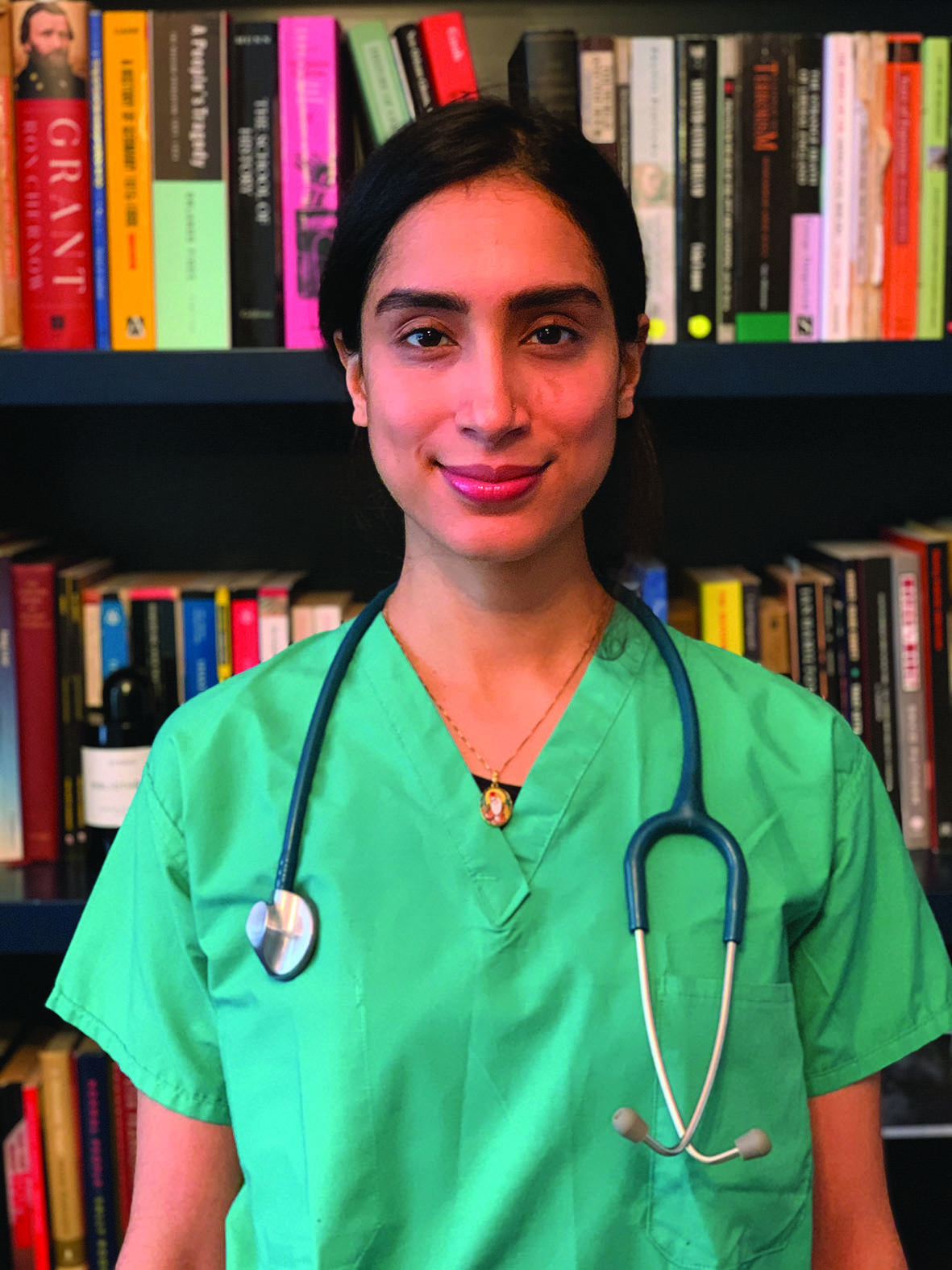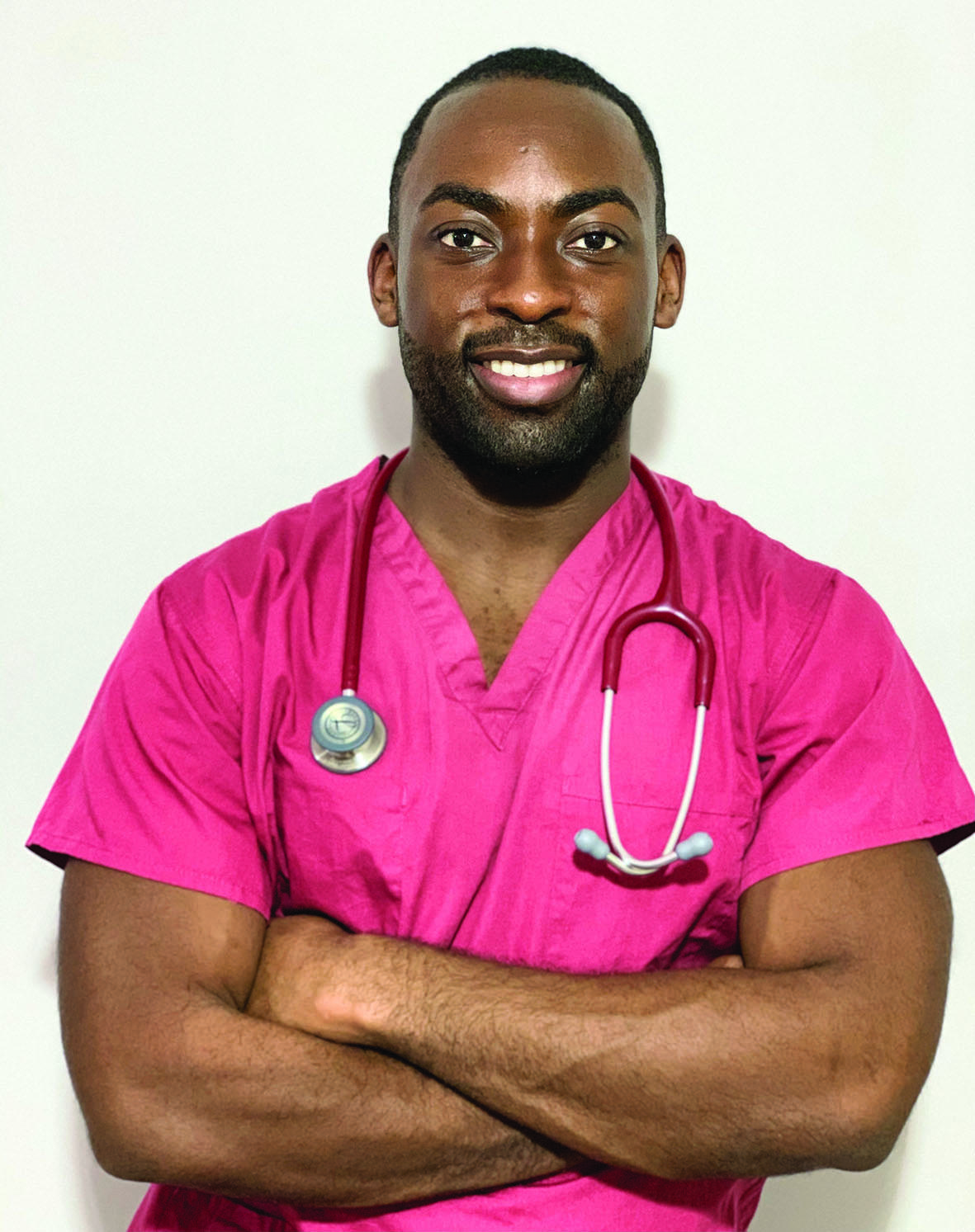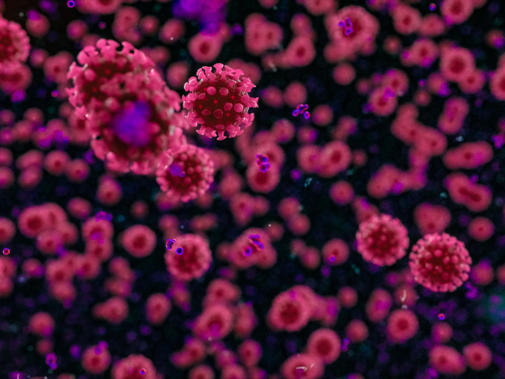 SAHOTA: ‘I felt so alone. There was just this anxious, adrenalised quiet where you feel you’re going to break psychologically before you break physically’
SAHOTA: ‘I felt so alone. There was just this anxious, adrenalised quiet where you feel you’re going to break psychologically before you break physically’
Panic attacks in the toilets, claustrophobic PPE, the relentless hiss of the ventilators, the surreal trauma of watching paralysed people fight for their lives…
Shaan Sahota’s raw, real-life experiences as a junior doctor working in critical care in London at the height of the pandemic are vividly captured in her new play, Under The Mask.
The protagonist, Jaskaran, is an FiY1 (foundation interim year one), whom COVID has catapulted prematurely into her medical career. In fact, Dr Sahota had been an FY1 for six months when she was redeployed from surgery to ICU in mid-March 2020. But she felt just as overwhelmed as her central character.
‘There was virtually no one in the hospital, no families, and my patients were all paralysed: they’d never even looked me in the eye,’ says Dr Sahota. ‘I felt so alone. There was just this anxious, adrenalised quiet where you feel you’re going to break psychologically before you break physically.’
I can’t tell you what a difference it makes when someone learns your nameDr Sahota
Dr Sahota was commissioned to write the audio-play after Tamasha theatre company read a blog she had written for The Guardian. To build intensity and realism, she interviewed several FiY1s for the project. The immersive soundscape is based on recordings made in ICU with a virtual-reality 3D microphone.
For Dr Sahota, the biggest adjustments were finding herself in a role for which she was unprepared emotionally. Her day to day was ‘small and tedious and humbling’. Administering eye drops, proning patients, emptying catheters. Countering racism with courtesy when patients demanded to see a ‘white doctor’. She was the only FY1 who stayed in ICU when the cohort were given the option to move on.
Partly through the catharsis of writing, she realises that the pandemic pushed everyone out of their depth. And she learnt that small things really matter.
‘When you’re depersonalised in this pile of PPE, I can’t tell you what a difference it makes when someone learns your name. When someone sees you as a person, not just a pair of hands, it really motivates you.’
Among all the existential questions the work raised and the play explores, Dr Sahota found one particularly challenging: ‘Do I only want to be a doctor because I expect people to get better?’ Most of her patients died.
‘Through COVID, the whole world has had this confrontation with death and suffering. I had a painful encounter but I don’t wish not to have seen it. You have to see all of life, including the ugliness, and say yes to it all.’
Interview by Seren Boyd
Under the Mask is a co-production between Tamasha and Oxford Playhouse and will be on tour from 23 March 2021
First draft
 KOOMSON: ‘These doctors took a bold step’
KOOMSON: ‘These doctors took a bold step’
COVID-19 has caused an array of disruption, uncertainty and drastic reform of the systems we once knew. One group of doctors all too familiar with this were the final-year medical students who were fast-tracked to become doctors.
At the Princess Alexandra Hospital in Harlow, around 20 doctors started work in May in these circumstances, with many more new doctors starting early in other trusts around the country.
Although often described as ‘drafted in’, it was their own choice whether they took up the posts. However, talking to them, it is clear they felt a considerable degree of pressure, from their own sense of duty and a prevailing climate where everyone was doing their bit.
A new type of job required a new title – FiY1s (foundation interim year one) doctors officially, but also known by some as ‘doctors by default’. This was one of several terms, such as ‘class of corona’ or the ‘COVID cohort’, which some of the doctors regarded as a kind of badge of honour, and others found condescending.
So, what were their experiences and how did they feel? We sent open, qualitative questionnaires around the cohort to find out.
Some of the doctors reported feeling “impostor syndrome”Dr Koomson
Naturally, there was a great deal of anxiety. Starting out as a doctor is stressful enough, but there were specific COVID challenges to add, such as the fears of PPE (personal protective equipment) shortages, and the risk of infecting loved ones.
The constant use of military language by the media – ‘battling’ the virus, working on the ‘front line’ – may have been meant to inspire but it tended to provoke concern instead.
Support came from wellness inductions, developed by the NHS, medical schools and foundation programmes and many engaged with and benefited from these.
Some of the doctors reported feeling ‘impostor syndrome’, familiar to many who qualified before them. But again, this was probably exacerbated by the conditions set by the pandemic.
The working environment was unfamiliar even to their experienced colleagues, and they had come to it through an unorthodox and premature rite of passage.
Some doctors look back on the experience positively. But we may have to wait some years for the answers on how this cohort was affected and find out whether they were adequately supported.
It will be interesting to compare them with those who waited until August to start their foundation jobs at the normal time. These doctors took a bold step, and we owe them our continuing attention and care.
By Albert Koomson
Original qualitative research was conducted by Albert Koomson (foundation year 1 doctor) and Adeel Abbas Dhahri (specialty registrar) at the Princess Alexandra Hospital NHS Trust in Harlow, Essex

